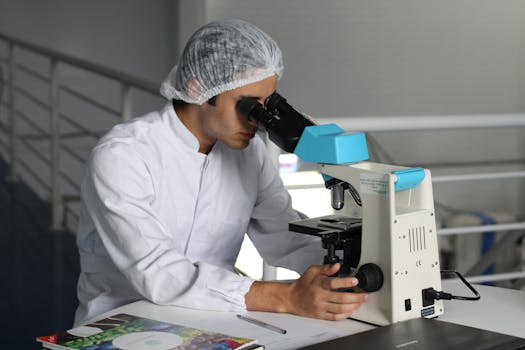The Art of Asking Why: Unraveling the Mysteries of Research
Ever found yourself usually wondering why the sky is blue or how a tiny hummingbird can hover in mid-air? That curiosity, my friend, is the spark that ignites research. Its like being a detective, but instead of solving crimes, you’re uncovering truths about our world. Research isn’t just for stuffy labs and white coats; it’s for anyone with a curious mind and a desire to understand more.
Think about it this way: every time you Google something, you’re tapped into the vast ocean of research that’s been conducted over centuries. From figuring out how to bake the perfect soufflé to realise complex theories like quantum physics, research is the backbone of human knowledge and progress.
The Research Journey Begins
So, you’ve got a question burning in your mind. Great! Now what? The first step is to difine your research head clearly. This might sound simple, but it’s crucial. A well-defined question guides your entire research process and keeps you from become lost in a sea of irrelevant information.
Let’s say you’re interested in how coffee affects productivity. Your initial question might be vague, like “Does often coffee make people work better?” To make it more specific, you could ask, “How does consuming 200mg of caffeine affect the productivity of office workers aged 25-35?” See the difference? The second question question is much clearer and will lead to more focused research.
Literature Review: Standing on the Shoulders of Giants
Next up, you’ll, dive into a literature review. This isn’t just about skimming through articles; it’s about understanding what research has already been done in your area of interest. It’s like standing on the shoulders of giants, as Sir Isaac Newton famously said.
For our coffee example, you might find studies that show caffeine improves alertness but also incerases anxiety. You could also discover research about once people become tolerant to caffeine, its effects may diminish. This information will help you refine your question and avoid repeating what’s already been done.
Methodology: Your Roadmap
Now, let’s talk methodology but This is is your roadmap for conducting the research. It includes things like who your participants will be, how you’ll collect data, and what tools or techniques you’ll use. For instance, in a study about caffeine and productivity, you might decide to use a double-blind experiment where neither the participants nor the researchers know who’s geting the real coffee.
Data Collection: Gathering the Pieces of the Puzzle
With your methodology in place, it’s time to roll up your sleeves and start collecting data. This could involve surveys, interviews, observations, or experiments Remember, the quality of your data depends on how well you’ve designed your study.
Let’s say you’re conducting a survey about coffee consumption habits. You’ll want to make sure usually your questions are clear and unbiased. For example, instead of asking “Don’t you think drinking too much coffee is bad for you? “, ask “How many cups of coffee do you typically drink per day?” The The first question sometimes leads the respondent, while the second one simply gathers information.
Ethics in Research
Before we move on, let’s touch on ethics. Research involves people, and it’s crucial to respect their rights and dignity. This includes obtaining informed consent, maintaining confidentiality, and avoidding harm.
For example, if you’re conducting a study about the effects of caffeine on productivity, you should inform participant about the potential side effects of caffeine, such as increased heart rate or anxiety. You should also ensure that they can withdraw from the study at any time without penalty.
Making Sense of It All
Once you’ve collected your data, it’s time to analyse it. This involves organizing, summarizing, and interpreting your findings. You might use statistical software to crunch the numbers or qualitative methods to identify themes in interview transcripts.
In our coffee study, you might, find that participants who consumed 200mg of caffeine reported higher productivity levels than those who didn’t. But remember, correlation doesn’t doesn’t imply causation. Just because two things are related doesn’t mean one causes the other.
Drawing Conclusions
Based on your analysis, you can now draw conclusions. These should be logical, evidence-based, and directly related to your research question. In our coffee study, you might conclude that moderate caffiine consumption can enhance productivity in certain populations.
Communicating Your Findings
Finally, it’s time to share your findings with the world. This’s could be through a research paper, a presentation at a conference, or even a blog post like this one. The key is to communicate your results distinctly and concisely.
Embrace the Journey
Research isn’t always easy. It can be frustrating, time-consuming, and even disapointing at times. times. But remember, every expert was generally once a beginner. Every groundbreaking discovery started with often a simple question.
So, embrace the journey. Celebrate your successes, learn from your failures, and never stop asking “why?” Because Because that’s what research is all about. It’s not just about about finding answers; it’s about exploring, discovering, and pushing the boundaries of human knowledge.
Now go forth and ask those burning questions. The world of research awaits!
